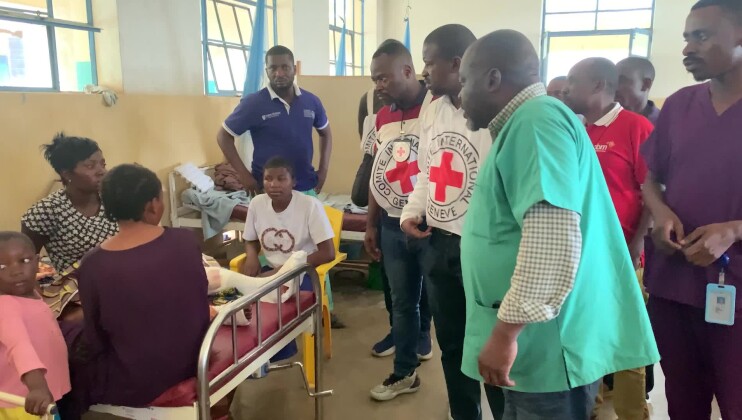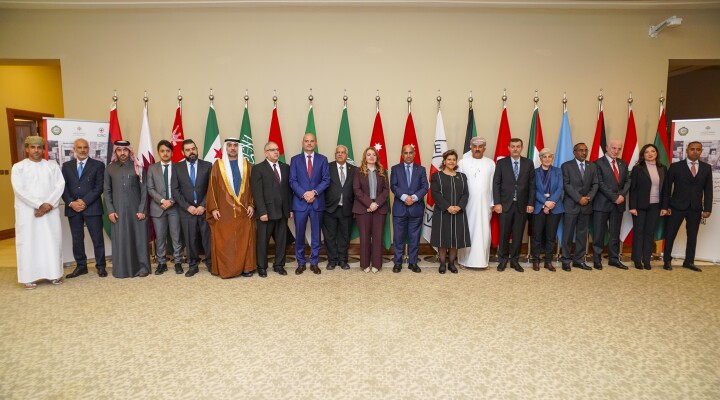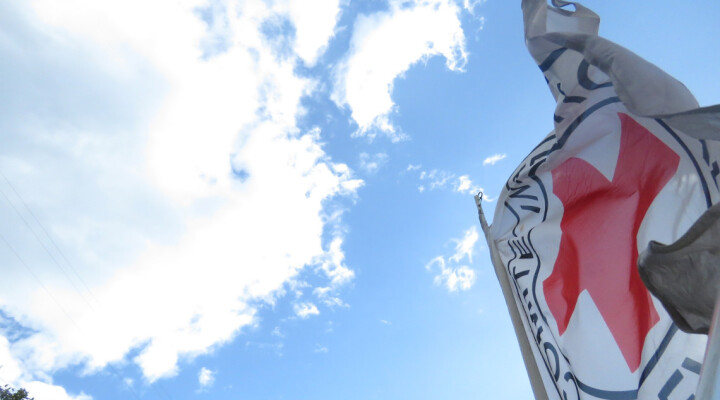Yemen: Ancestral Honey Production in Yemen at risk due to impact of conflict and climate change
Yemen has long been renowned for producing some of the best honey in the world, but enormous losses have been inflicted on the industry since the outbreak of the conflict in 2011. Successive waves of displacement to flee violence, the impact of weapon contamination on production areas, and the growing impact of climate change are pushing thousands of beekeepers into precarity, significantly reducing production. In short, armed conflict and climate change are threatening the continuity of a 3,000-year-old practice.
The history of beekeeping in Yemen goes back at least to the beginning of the 1st millennium B.C. For centuries, this practice has been an indispensable part of economic life in Yemen, but today after years of conflict combined with climate change, thousands of beekeepers are struggling to survive.
According to UN figures, there are around 100,000 Yemeni households engaged in beekeeping and dependent on it as their sole source of income. Active frontlines prevent beekeepers from moving around the country to graze their bees. In addition, dozens of beekeepers have reportedly been killed when trying to cross frontlines while grazing their bees or trying to sell their products.
“The mountain chain on Yemen’s west coast is a historic center for honey production, but for the last eight years the same area has been a battlefield,” said Amin, a honey producer from Taiz, one of the cities that has been severely impacted by the ongoing conflict. ‘’The worst day of my life was when a rocket landed on my bee colony. Since then, the situation has worsened; the business is no longer lucrative, the bees are disturbed, and life has gone from bad to worse.”
The presence of landmines and unexploded ordnance (UXO) presents a grave threat to all Yemenis, as there are more than 1 million land mines and improvised explosive devices scattered all over the country, killing and maiming civilians on a daily basis. Being a beekeeper in areas highly impacted by violence means further risk of being targeted by parties to the conflict while grazing bees in places close to active front lines. This situation has forced thousands of beekeepers to desert the honey industry and practice other occupations which require less movement. “I’m forced to stay in my area which is also forcing me to depend on only one season of production and that is not enough to be able to support my children,” said Youssef a beekeeper from Hajja governorate.
To make matters worse, Yemen, like many conflict-affected countries, is disproportionately affected by climate change. Temperature rises in recent years, combined with severe alterations caused to the environment, are disturbing the bees’ ecosystem which is impacting the pollination process. In 2022, there have been lower-than-usual precipitations. With water tables falling and increased desertification, areas previously engaged in agricultural activities and bee-keeping no longer sustain these livelihoods.
“I don’t only blame the conflict for what happens to us. There have not been any rains in months, and there are fewer flowers,” said Amin, the honey producer from Taiz. “My children had to drop out of school to work in other sectors as my business is no longer enough to meet my family’s needs,” he added.
Yemen is already witnessing an alarming level of food insecurity with more than 16 million Yemenis who are food insecure. In Hajjah, Amran and Al Jawf, there are nearly 50,000 people are living in famine like conditions according to WFP reports. Across Yemen vulnerable families are being pushed to the brink by the combined impact of armed conflict and climate change.
For more information, please contact:
Basheer Omar (Sanaa) balselwi@icrc.org+967 737889476 and/or +967 771 480 412
Imene Trabelsi (Beirut) itrabelsi@icrc.org +961 3 138 353
Jason Straziuso (Geneva) jstraziuso@icrc.org +41227302077
Notes for editors:
ICRC in Yemen: livelihood support
- In 2021, the ICRC provided various forms of relief support, including food, unconditional cash grants, basic household items and aid with agricultural and animal products to more than 1,603,605 people. This was done in coordination with the Yemen Red Crescent Society and the local communities. Also, in 2021, more than 112,500 livestock keepers benefited from the ICRC-supported vaccine campaigns.
- In 2021, more than 3,700 beekeepers and farmers benefited from ICRC beekeeping projects and Agroalimentary support in different parts of the country.
- In 2022, we are planning to continue support beekeepers through training and financial support.
- The ICRC is supporting sustainable income-generating activities, such as beekeeping, to empower Yemeni people and help them to be more independent in the long run.
Food Insecurity in Yemen:
- Seven years to the conflict, exhausted financial resources and savings, with collapsing economy, high inflation rates and unemployment and soaring prices of basic commodities, leaving around 20 million people foods insecure.
- Malnutrition rates among women and children in Yemen remain among the highest in the world, with 1.2 million pregnant or breastfeeding women and 2.3 million children under 5 requiring treatment for acute malnutrition.
- 2 million people going hungry, including some 5 million people on the verge of famine and nearly 50,000 people already experiencing famine-like conditions. It’s estimated 20 million people can’t find or afford enough food in Yemen today, with 3.2 million children and women acutely malnourished.
ICRC Response on Yemen’s west coast:
- The ICRC continues to support 6 health facilities of which two hospitals with medical materials to be able to treat war wounded people.
- The ICRC continues to support vital infrastructures in some parts of Taiz governorate to alleviate the suffering of the people who have been affected by the protracted conflict.
- The ICRC continues to distribute food, non-food items and cash to people who have been affected by the protracted conflict across Taiz governorate.
- The ICRC supplied Taiz Central prison with 20,000 L per day, 1,740 m3 in 2021, benefiting 900 detainees.
- The ICRC continues to support the PRC in Taiz city with the need materials and incentives for its staff.
- The ICRC has opened an office in Al-Turbah town of Taiz governorate to ensure adequate proximity to affected population in the governorate.
Log-list
Title : Yemen
Location : Taiz/Hajja/Saada/Beja
Length : 9:04
Producer : ICRC
Production languages : Arabic/ English
Filming dates : April/May 2022
Copyright : ICRC access all
Shortlist /Script:
|
Time Code |
Name of interviewee Title of interviewee, Location |
|
00:00 |
scene - Taiz countryside |
|
00:22 |
scene - Amin the Beekeeper walking towered his Beehives |
|
00:35 |
scene - Amin the Beekeeper working on his Beehives |
|
01:25 |
scene - Various shots of Amin looking at the valley |
|
01:55 |
scene - Shot of pouring Honey |
|
Soundbite: Amin adbulAziz - Taiz |
|
|
02:16 |
I started beekeeping 20 years ago |
|
02:21 |
Life was normal until this war suddenly came |
|
02:29 |
beekeeping was easy with the presence of trees in our valley |
|
02:40 |
And we used to be able to travel across the country up to three times a year for the bees to graze . |
|
02:44 |
For me as a beekeeper, it got worse |
|
02:47 |
You find that in the years of conflict extending from 7 to 8 years |
|
02:52 |
The worst day of my life was when a rocket landed on my bee colony. Since then, the situation has worsened; the business is no longer lucrative, the bees are disturbed, and life has gone from bad to worse. |
|
02:58 |
And one of the difficulties for all beekeepers here |
|
03:02 |
mountain chain on Yemen’s west coast extending from the Al-Barah region to the Hajjah is a historic center for honey production, |
|
03:13 |
this area happened to be the pasture area for bees |
|
03:19 |
but for the last eight years the same area has been a battlefield |
|
03:22 |
For some families, it is a major craft on which they depend entirely as their source of income |
|
03:31 |
Beekeeping is an activity like any other agricultural activity |
|
03:39 |
Now, transportation has become more difficult, and the expenses of bees have increased, and the materials we use with bees have increased |
|
03:51 |
Beekeeping was lucrative before the war in the sense that it had a great economic return on the family income |
|
04:00 |
But now it is no longer reliable for proper income |
|
04:03 |
My children were previously not working But now they had to drop out of school to work in other sectors as my business is no longer enough to meet my family’s needs |
|
04:14 |
Beekeeping has become a non-lucrative practice during the ongoing war |
|
04:18 |
Bees play a key role in the ecosystem. The pollinate the plants and trees |
|
04:27 |
Two-thirds of the world's food supply depends on bees |
|
04:32 |
Several studies say that the extinction of bees means the extinction of mankind |
|
04:38 |
scene - The beekeeper displays honey and some new colonies |
|
Soundbite: Sultan Alsabary - Saada |
|
|
04:50 |
We have been practicing beekeeping for a very long time over generations, and because of the conflict we lost many beehives |
|
04:59 |
We lost beehives, but now we're trying to start again |
|
05:03 |
scene - beekeeper displays beehives |
|
05:29 |
scene - a beekeeper teaches his daughter the name of a type of honey and teaches her how to deal with bees |
|
Soundbite: Abdulkreem alwashaly- |
|
|
06:15 |
For me, my bees are part of my family |
|
06:22 |
We live in perfect harmony |
|
06:24 |
scene - a beekeeper teaches a child to deal with bees |
|
Soundbite: Badda Saleh- Beja |
|
|
06:31 |
We live in harmony with bees |
|
06:40 |
Bees are essential to human life, and in the Beja region there are various trees during the seasons of the year |
|
06:48 |
We benefit from bees, and they have an economic and healthy return to humans and many other benefits |
|
06:57 |
For me, bees are like one of my children |
|
07:01 |
We live in harmony |
|
07:06 |
The war affected us badly when we had to flee for safety, we left the beehives behind |
|
07:14 |
We couldn't take them with us |
|
07:19 |
It was abandoned here for 5 months and we lost more than three quarters of the beehives |
|
07:24 |
Scene - beekeeper examining beehives |
|
07:40 |
Scene - beekeeper working on the beehives |
|
08:07 |
Scene - beekeepers with extracted beehives |
|
08:13 |
Scene - beekeeper walking towards the beehives |
|
Soundbite: Yousuf Ibrahim- Hajjah |
|
|
08:30 |
These days we face many difficulties |
|
08:34 |
We can't move beehives and we only have one season |
|
|
Soundbite: Beekeeper Hajjah |
|
08:40 |
Movement became difficult, the situation is becoming increasingly difficult, and the returns are few
One of the most challenging aspect is pasture areas are contain mines before the war, we could move easily between pastures, but now everyone is afraid of mines |



